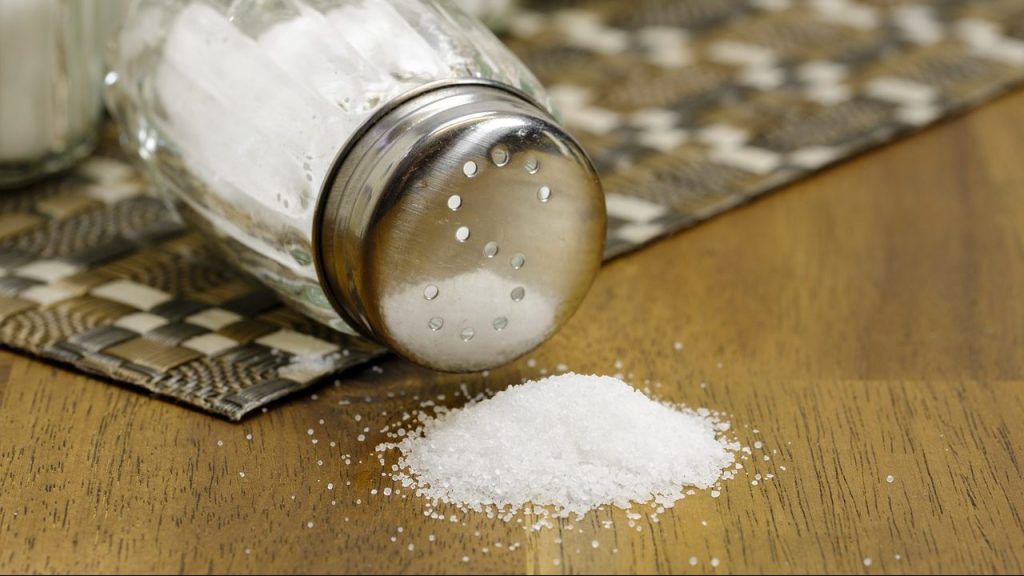Where do vegans get iodine? Vegan iodine sources are pretty easy to find depending on which geographical region you live in. If you happen to live in a region where iodine is harder to find, you might be at risk of developing an iodine deficiency.
Iodine is crucially important for maintaining a healthy thyroid gland, which regulates metabolism. It’s also important for a properly functioning immune system.(1, 2)
Iodine deficiency or excess can result in hypothyroidism, hyperthyroidism, fetal and childhood developmental disorders, goiter, and problems with metabolism.(1, 2)
Daily Recommendations
Nutritional recommendations for iodine and other nutrients are developed by the National Academy of Medicine (formerly the Institute of Medicine) to plan and assess the nutrient intakes of healthy people.
Recommended Daily Allowance (RDA) for Iodine:
| Age | Male | Female | Pregnancy | Lactation |
|---|---|---|---|---|
| 0–6 months* | 110 mcg | 110 mcg | ||
| 7–12 months* | 130 mcg | 130 mcg | ||
| 1–3 years | 90 mcg | 90 mcg | ||
| 4–8 years | 90 mcg | 90 mcg | ||
| 9–13 years | 120 mcg | 120 mcg | ||
| 14–18 years | 150 mcg | 150 mcg | 220 mcg | 290 mcg |
| 19+ years | 150 mcg | 150 mcg | 220 mcg | 290 mcg |
Recommended Dietary Allowance (RDA): average daily intake of a nutrient that’s sufficient to meet the nutrient requirements of nearly all (97%–98%) healthy people.
Adequate Intake (AI): approximate intake assumed to be nutritionally adequate based on limited research, though still not enough evidence to develop an RDA.
Tolerable Upper Intake Level (UL): maximum daily intake that’s unlikely to cause adverse health effects.
The Tolerable Upper Intake Level for iodine is 1,100 mcg for adults.(1)
How to Absorb More Iodine on a Vegan Diet
Certain foods, called goitrogens, make iodine more difficult for your body to absorb.(3) These foods include soy; flax seeds; and raw cruciferous vegetables such as broccoli, cauliflower, brussels sprouts, and cabbage.
If you’re iodine deficient, eating a diet that’s high in goitrogens can make an iodine deficiency worse and could lead to the development of a goiter (enlarged thyroid gland).(3)
You can reduce the harmful effects of goitrogens by cooking them.(3)
Iodine works with selenium to keep your thyroid gland healthy. Too much of one can cause a deficiency in the other.
Best Vegan Sources of Iodine
In nature, iodine almost always occurs as salt rather than as simply the element itself, which is why it’s often referred to as iodide instead of iodine.(3)
Foods from the ocean are naturally highest in iodine, though the iodine content of those foods varies and is therefore unreliable. It’s easy to get too little or too much iodine from oceanic sources of iodine.
On land, the amount of iodine in plants depends on the amount of iodine in the soil in which they’re grown. Soil iodine content varies by geographical region.(2) Plants grown near the ocean tend to be higher in iodine than plants grown farther from the ocean.
In over 70 countries including the United States and Canada, iodine is added to table salt at a rate of about 47 mcg per 1/8–1/4 teaspoon of salt. Be sure to look for salt that says on the package that it is “iodized.” Sodium in packaged foods is usually not iodized. Sea salt usually isn’t iodized.
The best vegan sources of iodine include:
- Seaweed (kelp, nori, kombu, wakame, etc.)
- Iodized table salt
- Iodine-fortified non-dairy milk
- Soy sauce
- Enriched bread
- Enriched pasta
Check nutrition labels for the iodine content of fortified and enriched foods — these tend to be reliable.
The nutrition labels for iodine content of seaweed products cannot be relied upon for accuracy.
It’s generally not a good idea to rely only on iodized salt to meet your iodine requirements because you can wind up getting too much sodium. One 1/4 teaspoon of salt contains 580 grams of sodium (which is about 1/3 of the RDA for sodium for adults).
Vegans & Iodine Supplements
Most people don’t need to take iodine supplements because they get enough iodine from their diet. Over-supplementing iodine can have serious negative health effects similar to those associated with iodine deficiency.(2)
People who may benefit from iodine supplements include vegans who are pregnant or lactating; people who restrict salt intake; people living in regions with iodine-deficient soil; and people who don’t use iodized salt.(2)
Disclaimer: The contents of this website are for educational purposes and are not intended to offer personal medical advice. To make sure your diet is providing you with the correct amount of nutrients your body needs, be sure to consult a nutrition specialist (ie: registered dietitian) with expertise in vegan diets.

